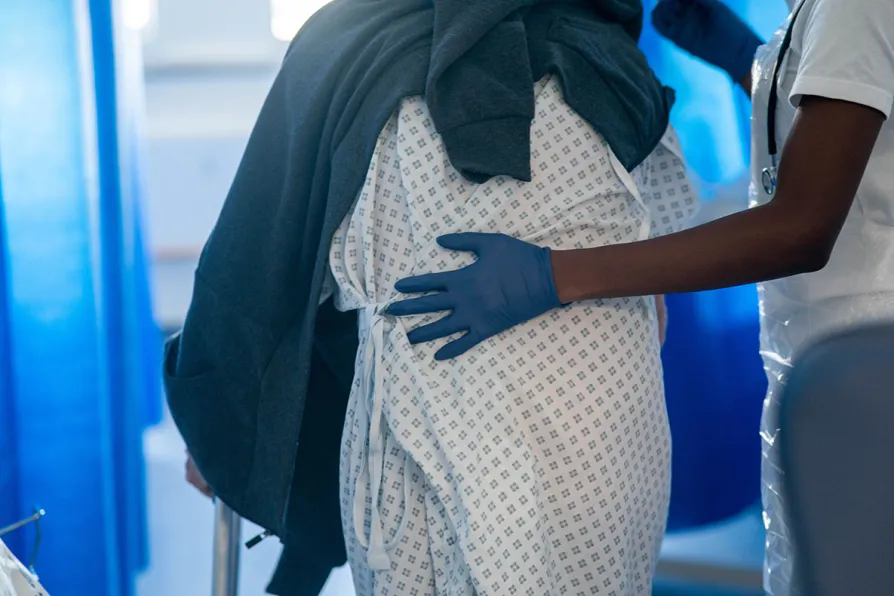The newly elected general secretary of the Aslef train drivers’ union speaks to Ben Chacko about union wins, a welcome shift in approach to the rail sector and what still needs to be done
We need a massive change in direction to renew a crumbling health service — that’s why Plaid Cymru has an ambitious plan to recentre primary care by recruiting 500 additional GPs and opening six new elective care hubs across Wales, writes MABON AP GWYNFOR

 Staff on a NHS hospital ward
Staff on a NHS hospital ward
RIGHT now, a sixth of Wales’s population is marooned in limbo, waiting for treatment and not knowing when relief will come. Many have suffered in discomfort, pain and anxiety for years on end. Labour’s habit of chasing false dawns and shifting the goalposts on performance targets knows no bounds.
This vast backlog is not just a scandal in itself. It is the sorry legacy of a government whose complacency, weakened authority, and lack of seriousness grow more glaring by the day. But it is also a symptom of a system that is simply not functioning as it should.
From ambulances left stranded outside A&E departments to the grim normalisation of unsafe “corridor care,” from delayed hospital discharges to missed cancer treatment targets, for too many people, the pathway to care has become a maze of obstacles. What should be timely, simple and transparent journeys have turned into ordeals marked by frustration and fear.
Where once we had a well-oiled machine, the pride of our nation and the envy of the world, we now have an NHS that is disjointed and damaged, struggling under ever-escalating demand and a complete lack of direction from a rudderless government.
Nowhere is Labour’s chronic neglect more apparent than in primary care. GPs account for over 90 per cent of all patient contact. In a very real sense, they are what keeps the NHS ticking. Yet the resources at their disposal have been shrinking. The share of the Welsh health budget allocated to general medical services has fallen to around 6 per cent.
It is little wonder that the number of GP practices in Wales has dropped by 27 per cent in the past two decades, and by 7 per cent since the pandemic alone. For those that remain, intolerable workloads have become the norm. Rising National Insurance costs, rent increases, crippling PFI contracts and Labour’s broken promises on energy bills have pushed many to breaking point.
The result is predictable: this first line of defence in our health service is being overwhelmed. Early intervention is harder to deliver, and referrals clog up an already congested system.
That is why Plaid Cymru believes our burning ambition must be to restore the shattered foundations of primary care.
This will take a long-term process of renewal, spanning multiple Senedd terms. It means shifting resources from secondary to primary care, raising the share of the health budget for general medical services to at least 8.7 per cent, with the aim of reaching 11 per cent. It means retaining more staff, reversing the familiar story of Welsh-trained doctors and nurses leaving rather than being supported to serve their communities.
We must also reform the Carr-Hill funding formula, which undervalues general practice and penalises surgeries in more deprived areas. And we must ensure the costs of running a GP practice are not so prohibitive that they deter the next generation from staying in Wales.
Our plan includes recruiting 500 additional GPs to bring us closer to the OECD average for primary care capacity.
But the Welsh public cannot be expected to wait years for change. Thousands are in pain now, and they deserve action now. That is why Plaid Cymru will deliver six new elective care hubs across Wales, specialist centres to provide high-volume, low-complexity treatments on an industrial scale, and to become centres of excellence for long-undervalued areas such as ophthalmology.
We will also invest to expand bed capacity, ending the shameful practice of corridor care, where patients are treated in chairs, in the backs of ambulances, or even on the floor.
And unlike Labour, we recognise that GPs must be part of the solution, not sidelined. A Plaid Cymru government will fund the rollout of telemedicine services across GP practices, easing administrative burdens and re-energising that vital relationship between doctors and patients.
Rebuilding our NHS is not about throwing money at the problem. Labour has already spent over £1.5 billion on waiting lists during this Senedd term, yet the backlog has grown by almost 200,000. That is the definition of failure.
We cannot rebuild primary care without tackling waiting lists. The two are inseparable, and that starts with empowering GPs to lead from the front.
Because the longer Labour’s waiting list crisis drags on, the more people will turn their backs on the NHS, some forced to go private, others simply left to live with untreated conditions. That is the most corrosive failure of all: the erosion of the NHS’s founding ideal of universal care. Once that faith is gone, it is painfully hard to restore.
The wait for change, though, is nearly over. The next election offers Wales a choice: more drift under Labour, or a Plaid Cymru government determined to rebuild the NHS so that people live longer, healthier lives, receiving care when they need it, where they need it, true to the founding principles of prevention, diagnosis and treatment.
Mabon ap Gwynfor is Plaid Cymru’s health spokesperson.













